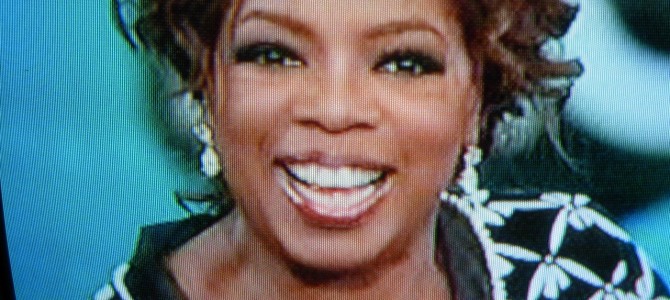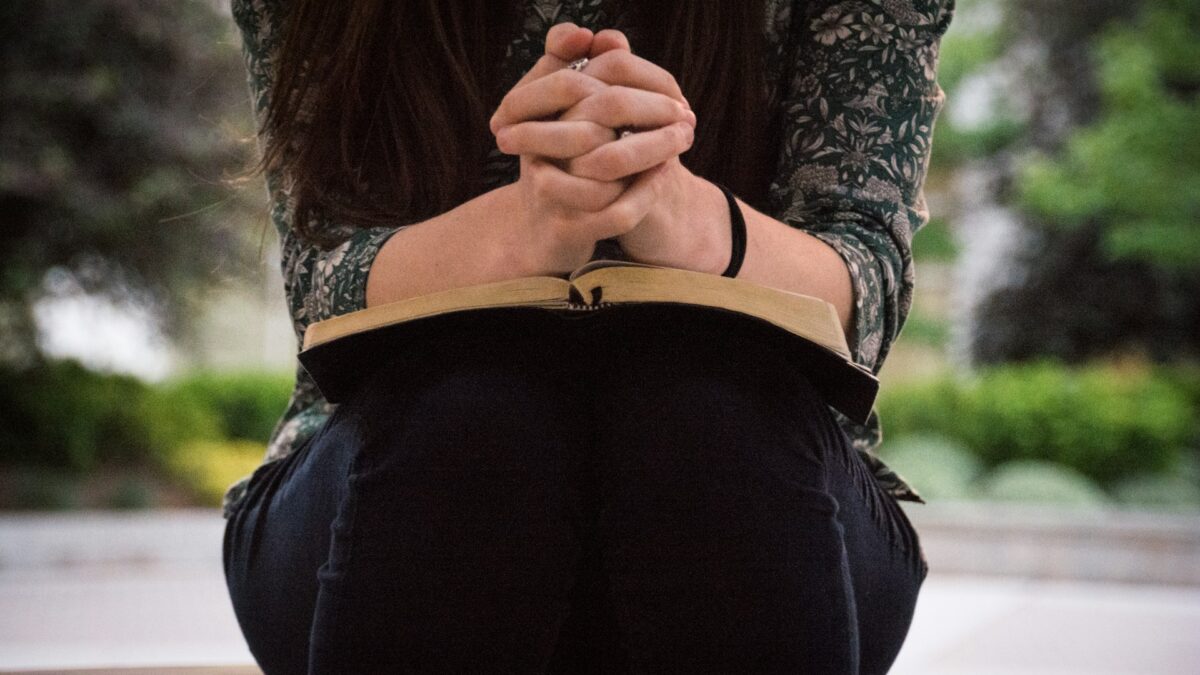
Oprah Winfrey has long been the leader in American guru aggregation, rounding up doctors, psychologists, planners, soothsayers, do-gooders, pastors, rabbis, and emotive specialists from all corners of life. Yet amidst the seeming diversity and specialization, the overall themes are rather predictable.
Look inside yourself. Be yourself. Improve yourself. Launch yourself. Love yourself.
And love others, too, I suppose.
Yet lo and behold, Oprah’s Big-Tent Self-Helpism is about to expand its posts once again. This fall, Oprah will rally a handful of preferred prophets and “tastemakers” to embark on an eight-city weekend tour, “The Life You Want,” a celebration aptly titled for the self-obsessed.
Though a tour of this variety is a first for Enterprise Oprah, and despite the booming promise of the promotional trailer — “Oprah like you’ve never seen, heard, or experienced!” — the aim and agenda are rather routine as far as upper-middle-class heart-tingling goes. All the way down to the $99–$999 price tag.
The tour will push themes of “empowerment, resilience, and authenticity,” we are told. Oprah will share her inspiring rise from poverty to media glory, followed by a series of talks by “hand-picked thought leaders” such as “spiritual teacher” Iyanla Vanzant, mind-body wizard Deepak Chopra, pastor-turned-surf-churcher Rob Bell, and all-around me-seeker Elizabeth Gilbert, author of Eat Pray Love. “The goal is to live the fullest, highest expression of yourself as a human being,” Oprah declares.
Swoon. Tingle. Tear. Repeat.
Not Your Grandmother’s Alcoholics Anonymous
As awe-inspiring as that may be, in observing the hype and grandeur of the thing, gloomier folk such as myself are prone to spot something deeper in all the “deepness,” a sticky surprise of sorts beneath the proverbial Oprah-theater seat.
This is not your Grandmother’s Alcoholics Anonymous, wherein human depravity is pressed to come clean, and in its frailty, humility, and desperation, submits itself to a higher power and reaches beyond its earthbound limits. This is not about “love” as selfless, unconditional devotion to the other, tied to transcendent commitments and cultivated through relationships not of its own design. This is not, as the One True Guru might say, the last shall be first.
This is cultural consumerism at both its highest and lowest — humanistic in its instincts, privileged in its priorities, and carefully glazed with all the right marketing to deceive itself that justice is at hand and Neighbor Love has the wheel. It’s as if human desire has grown so weary of natural constraints and so content with its own appetite that it would prefer to label self-indulgence as “self-help” and be done with it.
It’s faux-self-empowerment for the self-centered, heart-religion as a mantle for hedonism.
The “Life You Want” Isn’t the Life You Want
“It’s about living the life you want,” Oprah explains, “because a great percentage of the population is living a life that their mother wanted, that their husband wanted, that they thought or heard they wanted…Start embracing the life that is calling you and use your life to serve the world.”
We ought not be blind slaves to the arbitrary demands of others, of course. But as tourmate Elizabeth Gilbert unknowingly demonstrates, we also ought not eat-pray-love ourselves into oblivion, divorcing our “callings” from external needs and our desires from absolute obligations. If the “life you want” begins with the life you want, you’re not likely to find much life at all. When all you’ve got is an “opened self,” a “cleared mind,” and “the will to dream for yourself,” that delicious taco you ate on your Meditation Vacation to the Andes is probably your best bet for filling the void.
The prophets of self-esteem are sure to point to a “higher power,” of course. Indeed, for starting out as the first and second greatest commandments, the calls to love God and neighbor have evolved into furry-and-blurry platitudes for many. Yet properly understood, and bound to their particular context of obedience and sacrifice to a particular God and Savior, this is where true self-empowerment ultimately lies, and where the self, quite paradoxically, dies.
Grasping the true meaning of all that shouldn’t be too complicated, especially for self-help experts who peddle expensive weekends jam-packed with “timeless wisdom.” But it does require a clear vision of the image painted on the altar. And here, Oprah’s Big Tent Self-Helpism isn’t about to lend any spectacles.
The Osteenification of Rob Bell
Should we dare to hope for such clarity, however, former pastor and Oprah soulmate Rob Bell may be closest to the ultimate solution.
Bell’s longstanding trick has been to tout Christian orthodoxy in unconventional terms, using new-age lingo and peculiar analogies in an attempt to rouse the Christian imagination. Yet having recently left his Michigan congregation to explore the spiritualist caverns of California, such orthodoxy appears to be drifting dangerously into the realm of what my good friend Eric Teetsel has called Oprahdoxy.
Vacuous books and bizarre YouTube ramblings aside, consider the following samples from Bell’s recent interview with Oprah herself:
Oprah: What is the soul?
Bell: It’s the thing that keeps telling you there’s more.
Oprah: Your definition of God?
Bell: Like a song you hear in another room, and you think, “wow, that sounds beautiful but I can only hear a little bit.”
Oprah: What does prayer mean to you?
Bell: Prayer to me is usually one word, which is, “Yes. I’m open. What’s next?” That’s what it is.
Oprah: What’s the lesson that’s taken you longest to learn?
Bell: There’s nothing to prove…All that’s left to do is enjoy.
Oprah: What do you know for sure?
Bell: That you can say “yes” to this moment, and you can experience a joy that can’t be put into words.
Oprah: The world needs…
Bell: …All of us to wake up.
Oprah: I believe…
Bell: …That we’re all going to be fine.
This, let us remind ourselves, is the cutting-edge of Christian spirituality, the upgraded vocabulary of the Gospel, the new-and-improved City on a Hill. “You can say ‘yes’ to this moment,” saith the Lord.
It’s the type of ooey-gooey sentiment one has grown to expect from Joel Osteen, the very symbol of which Bell’s hip-and-earthy brethren originally sought to subvert, what with its slap-happy individualism and air-conditioned megachurch.
The Gen-X discontents of yesteryear were far more edgy and distinct, and yet somehow, the Osteenification of Christendom appears to have bypassed the Bible-thumpers altogether, aiming straight for the spunky sauce and diluting it in turn.
In a way, it all make sense. For in detaching themselves from the supposed “clichés” and “tired categories” of ages past — annoying in their constraints, foreboding in their “authority” and “structure” — emergent evangelicalism has really just been opening and emptying itself toward the same old vacuum as Gilbert’s. All that’s left is still that blasted taco, but “Jesus is in the taco!” so chomp chomp chomp.
The melting pot is warm, and as Bell apparently understands, “there’s nothing left to prove.”
“Who do you serve?” we might be tempted to ask.
“Just relax. We’re all going to be fine.”
“I Can’t Change, Even If I Tried”
For a clearer, more honest response to the question, one might look to rap-duo Macklemore & Lewis, who recently graced the Grammy’s with their hit song, “Same Love,” the chorus of which — “I can’t change, even if I tried, even if I wanted to” — proclaims human inability not as an obstacle to overcome, but as a feature to elevate and embrace. Macklemore is tired of distinctions and imperatives, and by golly, he’s giving up.
So much for “being all you can be.”
As depressing as such an attitude may be, it offers a helpful snapshot of the deeper irony of the Age of Self-Help. Oprah can continue to spin her wheels with every guru on the circuit, touting “self-empowerment” and bootstraps religion along the way, but such an ethos remains entirely consistent with the underlying surrender bound up in Macklemore’s snappy little sentiment. It’s all the same Chicken Noodle Soup for the Self-Indulgent, and Macklemore does us a service in putting the ingredients right there on the label.
We’re all looking for a soul at rest, and we’re all looking for inner peace. But where God is Self and Self is God, we ought not be surprised when we find ourselves at the mercy of human depravity, stuck in first-world ruts of self-obsession and excuse-making, afflicted by our own prosperity and privilege. The “life we want” surely requires “something more,” as Bell would say, but that certain something must be life-giving in its essence and orientation — absolutely, thoroughly, and completely.
This is not about “letting loose” our instincts and intuitions, giving way to what Oprah fondly refers to as her “emotional GPS.” This is about surrendering ourselves to a very particular source of transformation. As Bell himself surely must know, should he find an allegory chic enough to capture it, Jesus is his name, and to Jesus we must go.
For alas, when “she keeps me warm” becomes the driving justification for your philosophy of life — spiritual, social, sexual, or otherwise — and when the “life you want” cares little for anything beyond “opening yourself,” “looking deep inside yourself,” “saying ‘yes’ to this moment,” or “waking up” to some human-contrived ideal of self-awareness, you can bet your vacation to Bali that the demons of hedonism will lick their lips accordingly.









